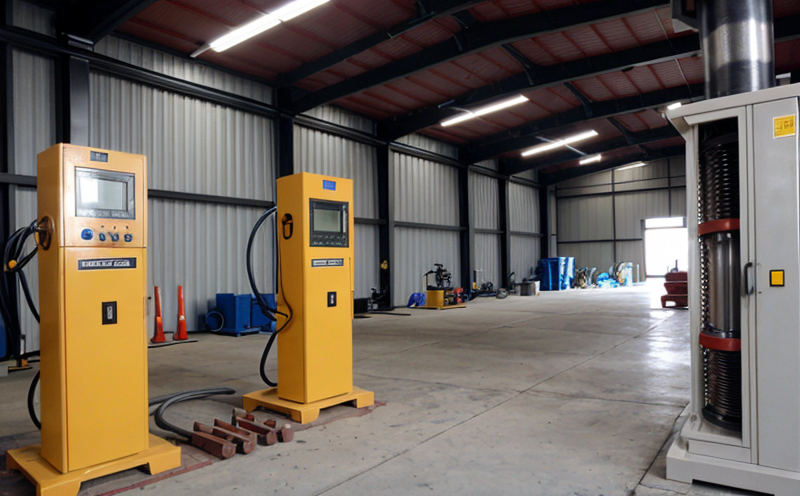ASTM D999-17 Vibration Testing for Transport
The ASTM D999-17 standard is a crucial specification used to assess the mechanical strength and durability of packaging materials under simulated transport conditions. This testing methodology ensures that packaging designed for shipment can withstand the rigors of transportation without compromising its integrity or functionality.
Transportation involves numerous challenges, including vibration, shock, and temperature fluctuations. ASTM D999-17 provides a standardized approach to replicate these environmental stresses on packages using a shaker table. The test simulates real-world scenarios where the package is subjected to controlled vibrations that mimic road, rail, or air transport.
The test setup typically includes a specimen of packaging material placed in a specific configuration and secured to the shaker table. The shaker then generates controlled vibrations over a specified frequency range and amplitude, which are designed to replicate the forces experienced during shipping.
Accurate measurement is paramount for this test. Sensors monitor both displacement and acceleration throughout the test duration, ensuring precise control of the vibration profile. Post-test evaluation involves inspecting the specimen for any signs of damage or failure, such as cracks, deformations, or loss of integrity.
The ASTM D999-17 standard specifies detailed parameters for frequency ranges, amplitude levels, and test durations to ensure that the simulation is realistic. The test typically consists of multiple cycles, each designed to replicate a specific phase of transport (e.g., loading onto a truck, transit by sea, or unloading).
Understanding the nuances of ASTM D999-17 requires knowledge not only of the standard itself but also of the broader context of packaging design and transportation logistics. This testing ensures that packages meet regulatory requirements and can perform reliably in real-world conditions.
- Customer Impact: Ensures compliance with international standards, enhances product safety, and builds consumer trust.
- Satisfaction: Reduces the risk of damage during transit, thereby improving customer satisfaction by delivering undamaged products.
- Quality Assurance: Provides a robust framework for quality control, ensuring that packaging meets or exceeds industry expectations.
Benefits
The benefits of ASTM D999-17 vibration testing are manifold. By adhering to this standard, manufacturers can ensure that their packaging materials are robust enough to endure the stresses of transportation without compromising on quality or safety.
Firstly, compliance with ASTM D999-17 helps companies meet regulatory requirements and industry standards, thereby safeguarding against legal issues. Secondly, it enhances product reliability by identifying potential weaknesses in packaging design early in the development process. This leads to more efficient R&D cycles, reducing costs associated with rework or redesign.
Moreover, ASTM D999-17 testing improves supply chain efficiency by minimizing the risk of damaged goods during transit. This not only reduces waste but also lowers insurance premiums and operational costs for businesses. Finally, consistent adherence to this standard fosters a culture of continuous improvement within organizations, driving innovation in packaging technology.
By investing in ASTM D999-17 testing, companies can gain a competitive edge by delivering superior products that meet or exceed customer expectations. This aligns with broader sustainability goals, as it helps reduce the environmental impact associated with product returns and replacements due to damage during transit.
Eurolab Advantages
At Eurolab, we offer comprehensive services that go beyond just ASTM D999-17 testing. Our team of experts ensures that every aspect of your packaging undergoes rigorous evaluation to meet or exceed industry standards.
We provide state-of-the-art facilities equipped with cutting-edge equipment capable of replicating real-world transportation conditions accurately. Our shakers are calibrated to produce precise vibrations according to ASTM D999-17 specifications, ensuring reliable and consistent test results.
Our experienced technicians understand the complexities involved in packaging design and can provide valuable insights into how different materials perform under various environmental stresses. This knowledge translates directly into recommendations for improving your product's durability and reliability.
In addition to ASTM D999-17 testing, we offer a full suite of services tailored specifically to the needs of our clients in the packaging industry. From initial consultation on material selection to final certification, Eurolab is committed to providing exceptional service throughout every stage of your project.





